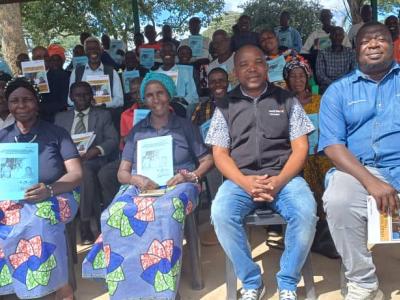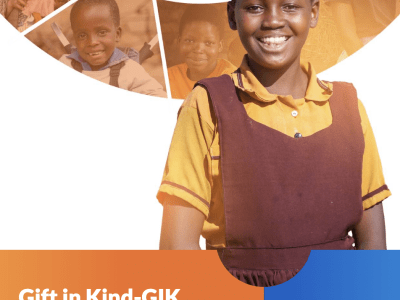article / April 21, 2025
Empowering the Poorest with Dignity: How Conditional Cash Transfers Are Revolutionising the Ultra Poor Graduation Model in Bangladesh
Across Bangladesh’s poverty pockets, a quiet transformation is underway led not by handouts, but by empowerment. At the heart of this change lies World Vision Bangladesh’s innovative use of Conditional Cash Transfers (CCTs) within its Ultra Poor Graduation (UPG) programme—a bold shift away from traditional asset transfers towards a community-driven, dignity-affirming model of livelihood development.
publication / April 23, 2025
Regreening Communities Supplementary Guidance Note: Fragile Contexts
World Vision's Regreening Communities Project Model addresses climate change and environmental degradation by guiding communities through a participatory environmental restoration process. A tailored set of solutions is selected by each community including scaling-up indigenous restoration practices, strengthening government partnerships for restoration, and introducing proven practices like Farmer Managed Natural Regeneration (FMNR).
article / April 16, 2025
World Vision's Community Based Education Programming Model Changing Youth Lives in Shurugwi Zimbabwe
Tapiwa eagerly registered for the CBE programme under the Sustainable Transformation Education Program—Unki Platinum (STEP-UP) project, funded by Anglo American.
article / April 22, 2025
DR Congo: Gemena’s Fight Against Mpox Becomes a Model of Success
This article shows how World Vision, in its response to Mpox, intensified awareness-raising activities and supported health facilities with appropriate equipment at a time when cases of the disease were still being reported. Today, health workers can intervene and stop the spread within the Gemena community. Awareness efforts are ongoing, and the community is actively involved to ensure that Mpox cases are completely reduced.
article / April 17, 2025
World Vision Calls on Parliament to Place Children at the Center of Mozambique’s Development Agenda
World Vision Mozambique and Parliament renew shared interest to reinforce actions to place children at the top of the agenda as the Assembly of the Republic begins its five-year term.
opinion / April 23, 2025
Three important lessons in field-driven innovation
Senior Director of Innovation Bagezile Dube unpacks why field-driven innovation is the secret to ensuring World Vision's work stays relevant in an ever-changing world.
article / April 15, 2025
Empowering Communities Through Citizen Voice and Action: A Path to Better Public Services in Chongwe East Area Programme
His Royal Highness Chief Bunda Bunda of the Soli people has applauded World Vision Zambia's Citizen Voice and Action (CVA) approach for transforming community engagement in Rufunsa District. Recognising the tool’s power to drive accountability and improve essential services, Chief Bunda Bunda hailed CVA as a catalyst for sustainable development in his chiefdom.
publication / April 14, 2025
Baseline study for the Nutrition for Growth, Education and Learning (ANGEL) project
The study will be cross-sectional, collecting and analyzing data from key beneficiaries (students, teachers, smallholder farmers, healthcare professionals, etc.) at a specific point in time.
publication / April 22, 2025
World Vision Malawi Gifts In Kind (GIK) 2024 Impact Report
Gifts In Kind Impact Report for World Vision Malawi
publication / February 18, 2025
Empowering Adolescents with Life Skills for SRHR and HIV/AIDS Prevention
World Vision Southern Africa, in partnership with the Ministry of Health and the Global Fund, is implementing adolescent-friendly spaces (AFS) across Zambia to support young people in making informed Sexual and Reproductive Health Rights (SRHR) decisions. Through the IMPACT+ model, a life skills approach integrating education, behavior change, and service-learning, over 36,000 out-of-school adolescents have been reached with SRH interventions, empowering them to navigate challenges like early pregnancy, HIV/AIDS, and peer pressure.
By equipping peer educators and health workers with IMPACT+ skills, the initiative fosters safe spaces where adolescents can access SRHR education, receive guidance, and build confidence. With increased community involvement and government support, this model is paving the way for sustainable adolescent health and well-being in the region.







